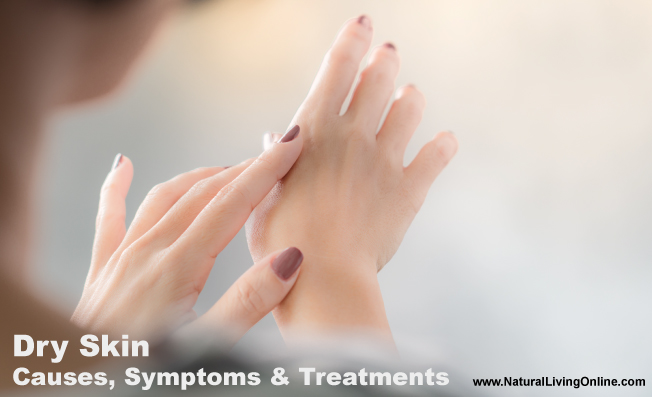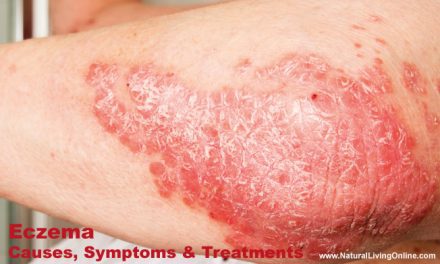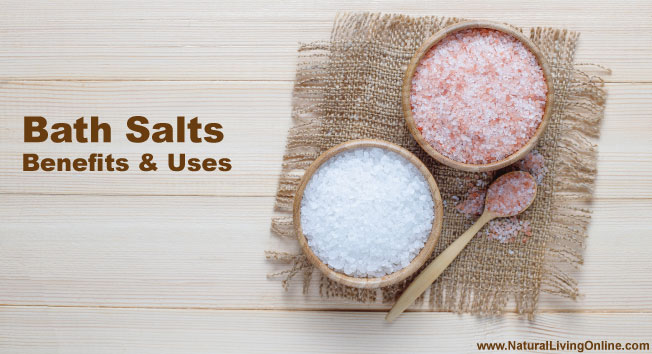Dry skin, also known as xerosis, is a common skin condition that affects millions of people worldwide. It occurs when the skin loses its natural moisture and becomes dry, flaky, and itchy. Dry skin can be caused by a variety of factors, including genetics, weather, harsh soaps, and certain medical conditions. In this article, we will discuss the causes, symptoms, and treatment options for dry skin.
Causes of Dry Skin
Dry skin can be caused by a variety of factors, including:
- Environmental factors: Cold, dry weather can cause the skin to lose moisture, as can exposure to hot water and harsh soaps.
- Genetics: Some people are naturally prone to dry skin, and may have a reduced ability to produce and retain moisture in their skin.
- Medical conditions: Certain medical conditions, such as eczema and psoriasis, can cause dry, itchy skin.
- Age: As we age, our skin becomes thinner and less able to retain moisture, which can lead to dryness and itchiness.
- Dehydration: Not drinking enough water can cause the skin to become dehydrated and dry.
- Medications: Certain medications, such as diuretics and some acne treatments, can cause dry skin as a side effect.
Clinical Signs and Symptoms
Some of the clinical signs and symptoms of dry skin may include:
- Itching: One of the most common symptoms of dry skin is itching or a sensation of tightness and discomfort in the affected area.
- Scaling: Dry skin can cause the skin to flake or scale, resulting in visible white or grey patches on the skin.
- Rough or uneven texture: The skin may appear rough or bumpy due to the lack of moisture, and may even feel like sandpaper to the touch.
- Cracks and fissures: In severe cases, dry skin can cause the skin to crack and develop small fissures, which can be painful and increase the risk of infection.
- Redness and inflammation: The affected area may become red and inflamed due to the dryness and irritation of the skin.
- Fine lines and wrinkles: Dry skin can make the skin appear older than it actually is by causing fine lines and wrinkles to develop.
- Dull or ashy appearance: The skin may lose its natural glow and appear dull or ashy in color.
Treatment Options for Dry Skin
If you are experiencing dry skin, there are several treatment options available to help relieve your symptoms. Here are some of the most effective treatments for dry skin:
- Moisturizers: The most effective treatment for dry skin is to use a high-quality moisturizer. Look for a moisturizer that contains humectants, such as glycerin and hyaluronic acid, which help to attract and retain moisture in the skin. You should apply moisturizer to your skin immediately after bathing or showering, when your skin is still damp.
- Gentle Cleansers: Harsh soaps and cleansers can strip the skin of its natural oils, leading to dryness and irritation. Look for a gentle, fragrance-free cleanser that is specifically formulated for dry skin.
- Humidifiers: Using a humidifier in your home can help to add moisture to the air and prevent your skin from becoming too dry. Aim to keep the humidity level in your home between 40-60%.
- Avoid Hot Water: Hot water can strip the skin of its natural oils, leading to dryness and irritation. Instead, use lukewarm water when washing your face and body, and avoid soaking in hot baths for prolonged periods.
- Sunscreen: Exposure to the sun can cause further damage to dry skin. Always apply a broad-spectrum sunscreen with an SPF of at least 30 when going outside, even on cloudy days.
- Drink Plenty of Water: Staying hydrated is important for overall skin health, as it helps to promote healthy skin function and prevent dehydration.
- Omega-3 Fatty Acids: Omega-3 fatty acids are essential for healthy skin, as they help to support healthy skin function and maintain skin moisture. You can get omega-3 fatty acids from foods such as salmon, flaxseed, and walnuts.
- Avoid Irritants: Avoid exposure to irritants that can further dry out the skin, such as perfumes, fabric softeners, and other chemicals.
Home Remedies
There are several home remedies that can be used to help alleviate dry skin:
- Coconut Oil: Coconut oil is a natural moisturizer that can be applied to the skin to help reduce dryness. It contains fatty acids that can penetrate deep into the skin and help to lock in moisture. Simply apply a small amount of coconut oil to the affected area and gently massage it into the skin.
- Oatmeal Bath: Oatmeal is a natural anti-inflammatory that can help to soothe dry, itchy skin. To make an oatmeal bath, simply grind one cup of oatmeal in a blender or food processor until it becomes a fine powder. Add the oatmeal to a warm bath and soak in the tub for 20-30 minutes. Pat your skin dry with a towel and apply a moisturizer.
- Honey: Honey is a natural humectant, which means it helps to attract and retain moisture in the skin. Simply apply a thin layer of honey to the affected area and leave it on for 10-15 minutes before rinsing off with warm water. Repeat this treatment once or twice a week for best results.
- Aloe Vera: Aloe vera has natural healing properties that can help to soothe and moisturize dry skin. Simply apply a small amount of aloe vera gel to the affected area and gently massage it into the skin. Repeat this treatment once or twice a day for best results.
- Petroleum Jelly: Petroleum jelly is a popular moisturizer that can be used to help reduce dryness and prevent further moisture loss. Simply apply a thin layer of petroleum jelly to the affected area and gently massage it into the skin. Repeat this treatment once or twice a day for best results.
- Avocado: Avocado is rich in healthy fats and vitamins that can help to nourish and hydrate dry skin. Simply mash one ripe avocado into a paste and apply it to the affected area. Leave it on for 10-15 minutes before rinsing off with warm water. Repeat this treatment once or twice a week for best results.
- Milk: Milk contains lactic acid, which is a natural exfoliant that can help to remove dead skin cells and promote healthy skin renewal. Simply soak a clean washcloth in cold milk and apply it to the affected area for 5-10 minutes. Rinse off with warm water and apply a moisturizer. Repeat this treatment once or twice a week for best results.
- Overall, home remedies can be effective in reducing dry skin and improving overall skin health. However, if you are experiencing severe or persistent symptoms, it’s important to see a doctor for further evaluation and treatment.
Prevention of Dry Skin
- Preventing dry skin is often easier than treating it. Here are some tips to help prevent dry skin:
- Use a humidifier: A humidifier can add moisture to the air and help prevent your skin from becoming too dry.
- Bathe or shower in lukewarm water: Hot water can strip the skin of its natural oils, leading to dryness and irritation. Instead, use lukewarm water when washing your face and body, and avoid soaking in hot baths for prolonged periods.
- Moisturize regularly: Applying a high-quality moisturizer can help to keep your skin hydrated and prevent dryness.
- Wear sunscreen: Exposure to the sun can cause further damage to dry skin. Always apply a broad-spectrum sunscreen with an SPF of at least 30 when going outside, even on cloudy days.
- Avoid harsh soaps and cleansers: Look for a gentle, fragrance-free cleanser that is specifically formulated for dry skin.
- Drink plenty of water: Staying hydrated is important for overall skin health, as it helps to promote healthy skin function and prevent dehydration.
- Use a mild laundry detergent: Avoid using harsh laundry detergents or fabric softeners that can further dry out the skin.
Conclusion
Dry skin is a common condition that affects many people worldwide. It can be caused by a variety of factors, including genetics, weather, harsh soaps, and certain medical conditions. The most effective treatment for dry skin is to use a high-quality moisturizer, avoid hot water and harsh soaps, and use a humidifier to add moisture to the air. If you are experiencing severe or persistent symptoms, you should see a doctor for further evaluation and treatment. With proper care and attention, you can help to prevent dry skin and maintain healthy, hydrated skin.
Frequently Asked Questions
What causes dry skin?
Dry skin can be caused by a variety of factors, including genetics, aging, environmental factors (such as cold weather, low humidity, and exposure to harsh soaps and chemicals), certain medical conditions (such as eczema, psoriasis, and thyroid disorders), and certain medications.
What are the symptoms of dry skin?
The symptoms of dry skin can vary from person to person, but common symptoms include itching, flakiness, roughness, cracking, and redness. In severe cases, dry skin can also lead to eczema or dermatitis.
How can I treat dry skin?
The treatment for dry skin depends on the severity of the condition. In mild cases, moisturizing regularly and avoiding harsh soaps and chemicals can help alleviate symptoms. In more severe cases, prescription creams or ointments may be necessary.
What are some preventative measures for dry skin?
To prevent dry skin, it’s important to keep the skin moisturized by using a good quality moisturizer regularly. It’s also important to avoid harsh soaps and chemicals, as well as exposure to extreme weather conditions. Drinking plenty of water and eating a healthy diet can also help keep the skin hydrated and healthy.
Can dry skin be cured?
While dry skin cannot be cured completely, it can be managed with proper skincare and preventative measures. In some cases, underlying medical conditions may need to be treated in order to manage dry skin symptoms effectively.
Can certain foods cause dry skin?
While there is no direct link between specific foods and dry skin, a balanced diet that includes plenty of fruits, vegetables, and healthy fats can help keep the skin healthy and hydrated.
Can stress cause dry skin?
Yes, stress can have a negative impact on the skin, including causing dryness and other skin conditions. Managing stress through relaxation techniques, exercise, and other self-care measures can help improve the overall health of the skin.
Can hot showers cause dry skin?
Yes, hot water can strip the skin of its natural oils and lead to dryness. It’s best to use lukewarm water when showering or bathing and to avoid spending too much time in the water.
Are there any natural remedies for dry skin?
There are several natural remedies that can help soothe and moisturize dry skin, such as aloe vera, coconut oil, oatmeal, and honey. However, it’s important to keep in mind that natural remedies may not be effective for everyone, and some people may have allergies or sensitivities to certain ingredients.
When should I see a doctor for my dry skin?
If your dry skin is severe or persistent, or if it is accompanied by other symptoms such as itching, redness, or scaling, it’s a good idea to see a doctor or dermatologist. They can help determine the underlying cause of your dry skin and recommend appropriate treatment options.
References:
- Boccanfuso SM, Cosmet L, Volpe AR, Bensel A. Skin xerosis. Clinical report on the effect of a moisturizing soap bar. Cutis. 1978 May;21(5):703-7.
- Abbas S, Goldberg JW, Massaro M. Personal cleanser technology and clinical performance. Dermatol Ther. 2004;17 Suppl 1:35-42.
- Lodén M. Role of topical emollients and moisturizers in the treatment of dry skin barrier disorders. Am J Clin Dermatol. 2003;4(11):771-88.
- Kraft JN, Lynde CW. Moisturizers: what they are and a practical approach to product selection. Skin Therapy Lett. 2005 Jun;10(5):1-8.
This website does not provide medical advice.
All information provided on this website, and on associated social media networks, including but not limited to texts, images, and numbers are for general information purpose only. It is not intended as medical advice and it does not include all possible precautions, side effects, or interactions that may occur. Neither NaturalLivingOnline.com nor its author/founder take responsibility for how you use this information. Statements contained on NaturalLivingOnline.com have not been evaluated by the FDA. You should conduct thorough research via multiple sources and consult your physician or qualified doctor before using any essential oil or herbal remedy. Information on NaturalLivingOnline.com must not be relied upon for medical, legal, financial or other decisions.













